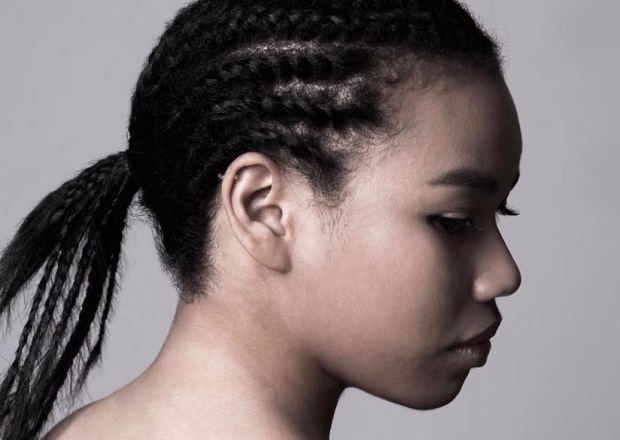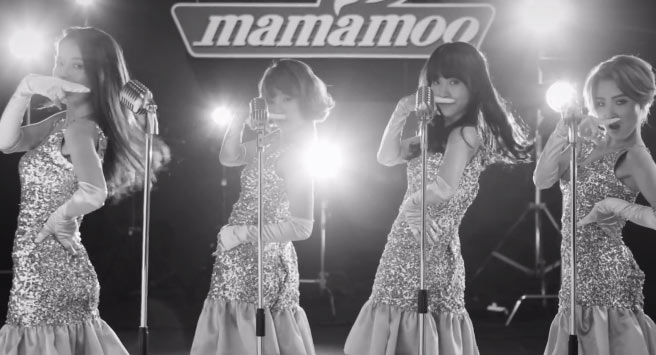 There are some videos that are meant to be dissected logically with emotional detachment. As an intellectual practice, it’s important to ensure that everyone finds something to connect to, something that they can all understand about the technical aspects of a video, how the video relates to the lyrics, etc. However, today I’m going pure emotion on this one, and I’m not even sorry.
There are some videos that are meant to be dissected logically with emotional detachment. As an intellectual practice, it’s important to ensure that everyone finds something to connect to, something that they can all understand about the technical aspects of a video, how the video relates to the lyrics, etc. However, today I’m going pure emotion on this one, and I’m not even sorry.
“Without You” is a triumph. The musical composition is bold, delivering as much of a punch as Lee Michelle’s vocal largeness. The songwriting team of Geurangpuri (Grand Prix)—which includes Seong Ji-jeon, Lee Yoon-gang, and Kim Jin-yong—and lyricist Seong Ji-woo penned a song that resonates to the very core. The lyrics are clear and precise, strong and powerful. The words speak of strength borne through great struggle and pain. It’s a confidence and owning of self, wrought through moments of insecurity, where you’ve felt unworthy, less than human, lonely. Lee Michelle’s vocal strength rings loud and true, declaring, “I’m beautiful without you. I’m meaningful without you.” As her declarations of self-love reach a crescendo, she breaks through the music itself, all sound silencing, and cries, “Without you, I’m okay!”
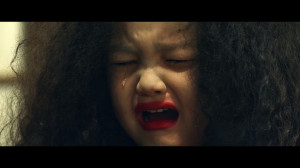 The MV for “Without You” is quite the emotional experience for any person of color, any person of mixed heritage, and anyone who’s ever felt like they’re always outside of the majority, on the fringe of what people consider “beautiful,” “acceptable,” “normal.” It touched something so deep inside me I was moved to tears. I’m one of those people who remembers high school as the worst years of their lives, not because of the pop quizzes and pep rallies. It was because I was always on the outside, always wearing a smile to hide pain so scarring I didn’t want to go on anymore. I wasn’t sure I could. I’m very fortunate; I found a way to survive.
The MV for “Without You” is quite the emotional experience for any person of color, any person of mixed heritage, and anyone who’s ever felt like they’re always outside of the majority, on the fringe of what people consider “beautiful,” “acceptable,” “normal.” It touched something so deep inside me I was moved to tears. I’m one of those people who remembers high school as the worst years of their lives, not because of the pop quizzes and pep rallies. It was because I was always on the outside, always wearing a smile to hide pain so scarring I didn’t want to go on anymore. I wasn’t sure I could. I’m very fortunate; I found a way to survive.
Not everyone finds their way out of that darkness, and it can only be more unbearable if every image you ever see of “true beauty” looks nothing like you. When everything marketed to you tells you how imperfect you are and how you need to become better and overcome those imperfections to be worth something. I can only imagine how young kids of mixed heritage in South Korea feel, never seeing anyone who looks like them, always regarded as some sort of being separate from society.
[youtube http://youtu.be/vLl-Xwoos68]The images in the MV are simple yet so incredibly poignant. A young mixed-race child, kinky wild hair, milk chocolate skin, walks down an alley, noticing a mural of different people, all painted with light skin tones except the one in the middle. It must be harrowing to see the only likeness to yourself in an alley above a trashcan. She’s suddenly chased, the laughter of children following her until she reaches her own safe haven. The wall is covered in all the hideous words people have said to her and the images of the world as she sees it: her mother, lots of people, and a raging sea. In the middle of the crashing waves is a half-blue, half-brown face.
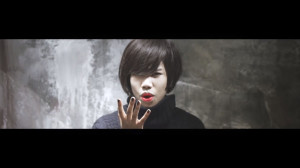 The video features Lee Michelle singing directly into the camera, her eyes serious and deep. In a scene that no doubt many people are familiar with, the little girl is padding her face with light makeup and deep red lipstick. Then we get a cut scene of Lee Michelle, her face in white makeup with the bold red lipstick and a bob cut, a look very reminiscent of the women always seen in music videos, winning awards, being told they’re the most beautiful women in the world. She stares into the camera, shattering that wall of detachment, demanding you see her, her struggle for acceptance, her understanding of everything that’s essentially been put on her, her image made up to attempt to fit a mold she just can’t force herself into. She then strongly repeats the words of the chorus, “I’m beautiful without you, I’m sick of you.”
The video features Lee Michelle singing directly into the camera, her eyes serious and deep. In a scene that no doubt many people are familiar with, the little girl is padding her face with light makeup and deep red lipstick. Then we get a cut scene of Lee Michelle, her face in white makeup with the bold red lipstick and a bob cut, a look very reminiscent of the women always seen in music videos, winning awards, being told they’re the most beautiful women in the world. She stares into the camera, shattering that wall of detachment, demanding you see her, her struggle for acceptance, her understanding of everything that’s essentially been put on her, her image made up to attempt to fit a mold she just can’t force herself into. She then strongly repeats the words of the chorus, “I’m beautiful without you, I’m sick of you.”
The little girl looks at her face, observes her hair and dark skin, and she sobs, realizing that she can’t be that image. She will never be that “ideal” of beauty. The pain on her face is enough to crack the stoniest heart. But when Lee Michelle proclaims that she’s just fine without the world’s standard of beauty, meaningful without society’s approval, the little girl’s tears reverse.
Our young heroine stands before an outlined sketch of Lee Michelle on a white wall, contemplating the blank canvas. She looks enraged, enraged that she will never grow up with that pale skin, that beauty that everyone speaks to her about only in mocking tones—again the laughter of the children filters through. She throws a red paintball at the outline, loosing that frustration. But then something happens. The song blossoms into something more triumphant, the music gaining strength as it reaches its final battle cry. And then we see something new on the child’s face—happiness. As the red paint explodes and blooms on the white canvas, she sees the beauty in it, and she begins to throw more balls of every color. She’s elated with the mess of color, the celebration in all the hues that make up the final composition. She’s fought the people who say her color is wrong and has come out of the battle absolutely ecstatic with the array of colors, the smaller parts that make up the totality of who she is.
The portrait becomes a portal to a world completely detached from the one she’s in, devoid of color, noise, judgment. As she walks she comes face to face with Lee Michelle, the younger version of the singer meeting the current version, who’s all confidence and pride. The two representations of the singer smile at each other. In that moment of silence, Lee Michelle’s voice rings out with her declaration of self-love, and the note lingers until the credits roll.
 “Without You” breathes new life into the K-pop scene. It challenges the images we see of the ivory faces and straight black hair. Though I’m sure a few people won’t give credence to this notion, Lee Michelle’s video is a milestone in K-pop. Insooni, the most lauded mixed-race Korean-African-American artist in South Korea, paved the way for Lee Michelle to be able to even debut. But Insooni is a legend, a woman who has been making music for over thirty-five years. She’s paid her dues, and as something of an elder stateswoman in K-pop and Soul, she’s risen far above the need to prove herself.
“Without You” breathes new life into the K-pop scene. It challenges the images we see of the ivory faces and straight black hair. Though I’m sure a few people won’t give credence to this notion, Lee Michelle’s video is a milestone in K-pop. Insooni, the most lauded mixed-race Korean-African-American artist in South Korea, paved the way for Lee Michelle to be able to even debut. But Insooni is a legend, a woman who has been making music for over thirty-five years. She’s paid her dues, and as something of an elder stateswoman in K-pop and Soul, she’s risen far above the need to prove herself.
The undisputed Queen of Hip-Hip in South Korea, Yoon Mi-rae, has always represented her mixed heritage with grace and unwavering pride, declaring “Black Happiness,” Black is beautiful, and her Afro-American heritage is never something to be ashamed of. However, she has established herself as a force to be reckoned with, taken the helm as one of South Korea’s most important artists. Neither one of these well-respected women have ever navigated through the modern idol system that’s 75% based on appearance, eternal youth, and, yes, the concept that lighter skin is “cleaner” and more desirable.
In this modern world of K-pop where snide comments about EXO member Kai’s darker skin tone or the representation of darker skin on variety shows are commonplace and almost taken as gospel, for Lee Michelle to declare herself beautiful and worthy is powerful. Insooni is of a bygone era that didn’t depend exclusively on looks or the homogenized concepts in pop music in the last six or seven years. As a part of that system, Lee Michelle has now become a role model, particularly for children like the young girl in the video, who have never seen positive images of women that look like them—dark-skinned, kinky-haired, different. She serves as positive reinforcement to young people, telling them, yes, you are beautiful; you are worth love and care; you can be successful and have purpose in a world that casts you aside as nothing more than an “other,” an alien and foreign concept in the conversation about true beauty.
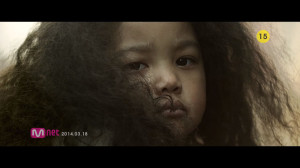 “Without You” goes much deeper than its pop inclinations. When we talk about revolutionaries, about people who have changed the scope of history, we imagine people like Dr. Martin Luther King, Jr. or the likes of John Lennon. However, in the relatively smaller world of K-pop, change comes in smaller packages. It could’ve been very easy for DIMA Entertainment to debut Lee Michelle as another R&B diva, her darker skin informing her soul and flare. Instead, DIMA Entertainment’s creative team have set the stage for something radical in South Korea. Small steps are what change history. “Without You” may be nothing more than a drop in the sea, but the cultural ramifications of it could cause a tsunami. For every insecure child, every lonely teenage girl, this music video is as powerful as any speech or sermon any young preacher from Atlanta, GA, ever gave.
“Without You” goes much deeper than its pop inclinations. When we talk about revolutionaries, about people who have changed the scope of history, we imagine people like Dr. Martin Luther King, Jr. or the likes of John Lennon. However, in the relatively smaller world of K-pop, change comes in smaller packages. It could’ve been very easy for DIMA Entertainment to debut Lee Michelle as another R&B diva, her darker skin informing her soul and flare. Instead, DIMA Entertainment’s creative team have set the stage for something radical in South Korea. Small steps are what change history. “Without You” may be nothing more than a drop in the sea, but the cultural ramifications of it could cause a tsunami. For every insecure child, every lonely teenage girl, this music video is as powerful as any speech or sermon any young preacher from Atlanta, GA, ever gave.
Song: 4.5/5
MV: 5/5

